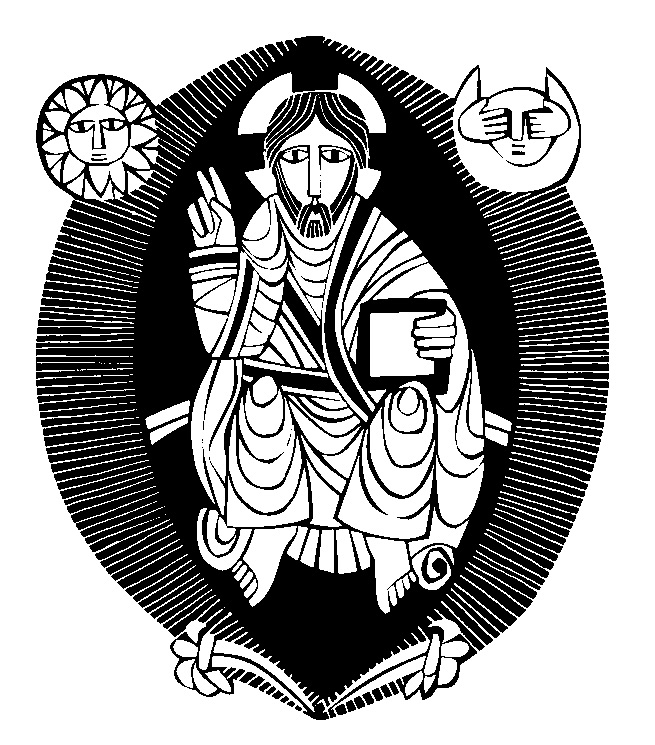|
|
Jesus answered, “You say I am a king. Happiness and Meaning |
|
|
“Are you happy?” How would you honestly answer that? My suspicion is that, for most of us, this would be a painful question which, given our fantasy of what happiness should be, we would tend to answer in the negative: “No, I don’t think I’m happy. I would like to be, but there are too many limitations and frustrations in my life which block happiness.”
“Are you happy?” To stare that question square in the face can make you more unhappy. A torturous self-scrutiny can result from it. What this suggests is that perhaps it is not a good question to ask in the first place. To ask myself: “Am I happy?” is to confuse things and to begin to demand things from life and from God that are not realistic.
For a Christian, there is a better question. The essential question should not be, “Am I happy”? but rather, “Is my life meaningful?” That is a different question, one which can help purify our perspective on things.
To take the gospel seriously is not to be given immunity from the human condition. No. For the Christian, as for everyone else, there will be the same sicknesses, the same cold lonely seasons, the same painful frustrations, the same choices that are regretted, and the same bitter losses. Like everyone else, too, eventually we will have to face death. Faith in God does not, in this world, save one from pain, misunderstanding, loneliness, and death. Faith does not offer a life free of pain. What God does promise is to be with us in that pain. That is why our Savior’s name is Emmanuel, a name which means God-is-with-us. To have faith in God is to have God with you. This, as Avery Dulles once so aptly put it, does not give you a ladder to crawl out of the human condition, but a drill to burrow into the heart of it:
For the Christian, then, the important question is not: “Am I happy?” but “Is my life meaningful?” By asking the latter question rather than the former one, I do not torture myself with some unattainable romantic ideal and, more importantly, I do not ask God to exempt me from the human condition. My life is meaningful precisely when I sense God’s presence in the midst of my suffering, sicknesses, loneliness, and pain. My faith should never pressure me to ask God to exempt me from these. Why should I be spared the human condition? Rather my faith should allow me to stand inside of every reality in my life, positive and negative, and see some meaning in it. “Is my life meaningful?” When I ask the question this way the perspective is very different. Now my happiness will no longer depend upon my never getting sick, or upon my not getting lonely, or upon my never being misunderstood, or upon my never making wrong choices, or on somehow being exempt from death’s shadow. Life can be frustrating and still be very meaningful. We can be lonely, sick, sorrowful about wrong choices, over-worked and unappreciated, staring old age and death in the face and still experience deep meaning. Happiness will be a by-product of that.
Are my symbols working? Is my faith deep enough so that every corner of my experience, no matter how painful, makes some sense in a higher plan? Is God with me as I walk through both health and sickness, joy and sorrow, friendship and loneliness, success and failure, youth and aging? Does my life have a meaning? The question about happiness comes after that question. Ron Rolheiser |
|



 What God has promised us in Christ is not, as is unfortunately so often preached and believed, a life free from pain, sickness, loneliness, oppression, and death. The preacher who tells you that you will have less pain in life if you take Jesus seriously is not in touch with the gospel. What the incarnation promises is not that Christ will do away with our pain, but that God will be with us in that pain. That is something quite different. In fact, one can go further and say the opposite: If you take the gospel seriously, you will probably have more pain in your life because you will be a more sensitive person.
What God has promised us in Christ is not, as is unfortunately so often preached and believed, a life free from pain, sickness, loneliness, oppression, and death. The preacher who tells you that you will have less pain in life if you take Jesus seriously is not in touch with the gospel. What the incarnation promises is not that Christ will do away with our pain, but that God will be with us in that pain. That is something quite different. In fact, one can go further and say the opposite: If you take the gospel seriously, you will probably have more pain in your life because you will be a more sensitive person.